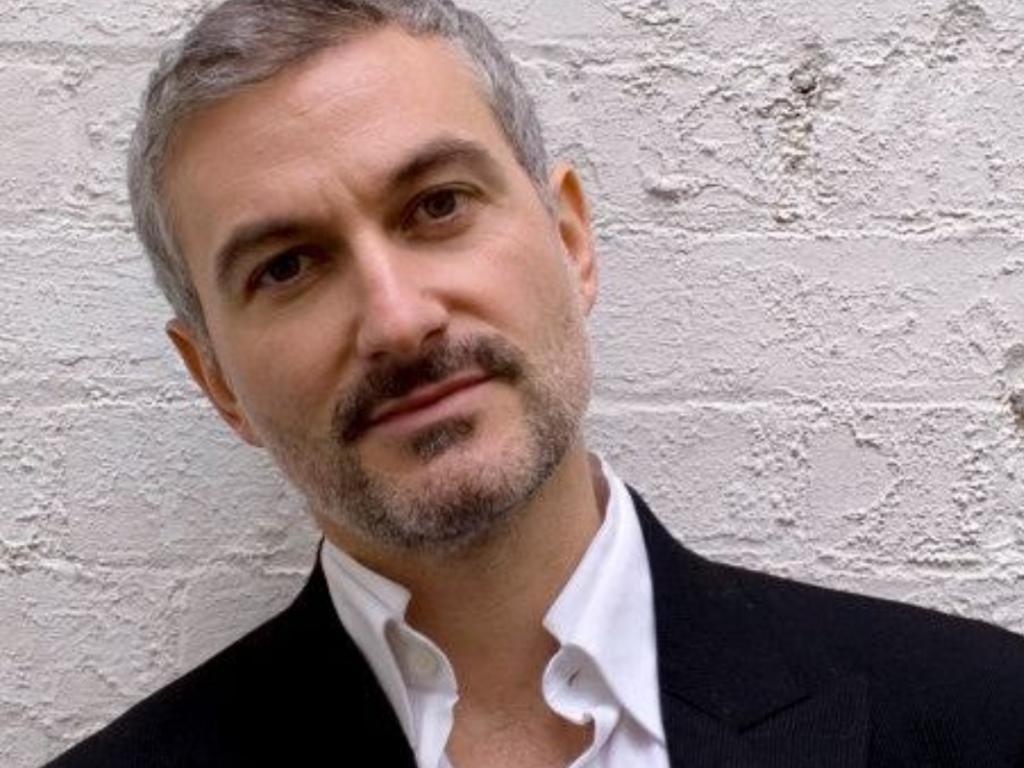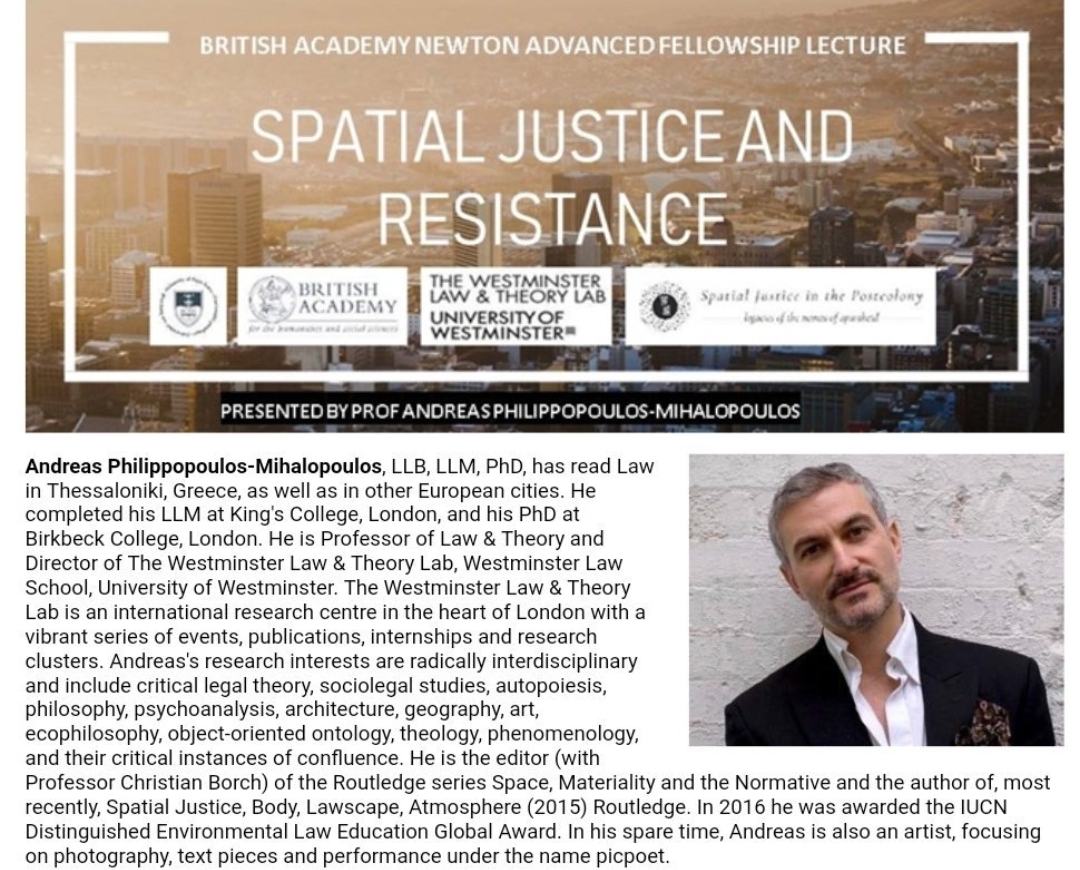Spatial Justice and Resistance - public lecture 15 July

The UCT Law Faculty is hosting a public lecture on spatial justice and resistance, with special visiting lecturer Professor Andreas Philippopoulos-Mihalopoulos from the Westminster Law & Theory Lab (Westminster Law School).
When: Monday 15th July 2019
Time: 17h00 for 17h30
Where: LT 1, Level 2, Kramer Building, Middle Campus
Hosted by DVC Prof Loretta Feris on behalf of the VC, in partnership with the Dean of Law, Prof Danwood Chirwa, this public lecture and discussion promises to be a unique opportunity to engage with thinking and academic work on the topic of spatial justice.
This lecture forms part of a 12-day series of events, seminars, lectures etc heralding the conclusion of Prof Jaco Barnard-Naude's term as the prestigious British Academy's Newton Advanced Fellow in the School of Law at Westminster University. Prof Barnard-Naude is a member of the Department of Private Law at UCT, and is co-director of the Centre for Rhetoric Studies at UCT Law.)
In the words of Prof Philippopoulos-Mihalopoulos:
Spatial Justice is an open question: what happens when a body moves into the space of another body? What happens when one body desires to be exactly where another body is, at exactly the same time? And how does this tie in with resistance? Spatial justice fleshes out the violence of unitary emplacement: only one body can occupy a specific space at a specific time.
The result of such desire is conflict, displacement, marginalisation, invisibilisation. The question of spatial justice is at the core of every geopolitical, economic, colonial and postcolonial, racial, gendered, class and so on, conflict. It remains the ultimate quest, bringing together justice as emplacement and spatiality as movement. Its emergence does not offer a final solution but urges towards a constant repositioning. Thus, resistance not as staying put but as constant questioning.
In order to explain this, I employ the concepts of the lawscape, namely the spatial and legal tautology, and atmosphere, namely the material illusion of justice as perfect emplacement. I argue that spatial justice can only emerge through a radical withdrawal from the atmospherics of control perpetuated
by the neoliberal, self-policing affective society of growth and consumption; and a movement towards the perpetual questioning that comes from the infinity of space as manifold.
Through the above definition and practice of spatial justice, I propose a radical conceptualisation of law and politics of movement, on the basis of a posthuman, affective, embodied and generally material understanding of justice.
